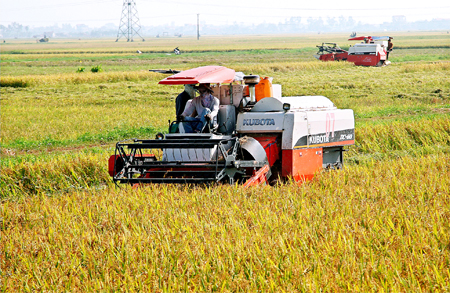The News
Vietnam project sows seeds of sustainability: An innovative collaboration between New Zealand and Vietnam
Vietnam project sows seeds of sustainability: An innovative collaboration between New Zealand and Vietnam is helping to create a new supply chain model
An innovative programme in Vietnam providing sustainable returns to smallholder farmers and delivering quality, safe fresh vegetables to consumers has been showcased at Fruitnet World of Fresh Ideas, part of Fruit Logistica, in Berlin on 4 February.
Binh Dinh Safe Vegetables Programme (BDSV) combines internationally recognised scientific expertise and development funding from New Zealand with local knowledge and resources to improve the economic and environmental sustainability of vegetable farming in Vietnam’s Binh Dinh province.

Produced to meet high standards and Vietgap-certified, the vegetables are being rolled out under the specially developed La Lanh (Good Leaf) brand across central and southern Vietnam, through Central Retail/Big C Vietnam and other outlets. In future, that market is expected to grow, potentially to include exports. Ultimately, many thousands of farmers are likely to be involved.
In Berlin, BDSV programme director Dr Michael Lay-Yee outlined the venture’s “whole-of-supply-chain” approach, from locally suited production methods and post-harvest processes to commercialisation.
“Having a direct connection to the market through branded safe vegetables empowers smallholder farmers,” he said. “If farmers can see that their safe vegetables sell, they feel more invested in the quality and timely supply of their produce. The La Lanh brand is vital – having compelling branding that consumers trust is pivotal to long-term success.”
Tran Binh Long of Central Retail/Big C Vietnam said he believed La Lanh produce met the needs of the buying public: “There is steadily growing demand from consumers to buy vegetables they know are safe and grown sustainably and La Lanh fits those criteria.”
BDSV is a collaboration between the New Zealand Institute for Plant & Food Research Limited, the Binh Dinh Department of Agriculture and Rural Development, and other agencies and specialists. The five-year programme, which began in 2016, is funded by New Zealand’s Ministry of Foreign Affairs and Trade and the Binh Dinh Provincial People’s Committee.
Eventually, said Lay-Yee, this innovative and inclusive model could be adapted for use in other parts of the world. “It is exciting to be part of such valuable initiative.”




